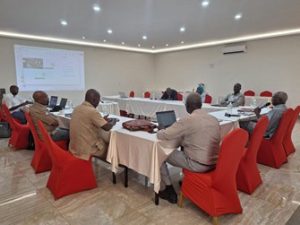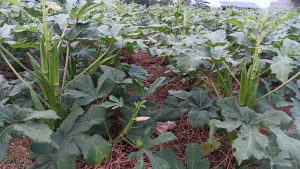Mozambique: TAAT excites farmers with game-changing technologies
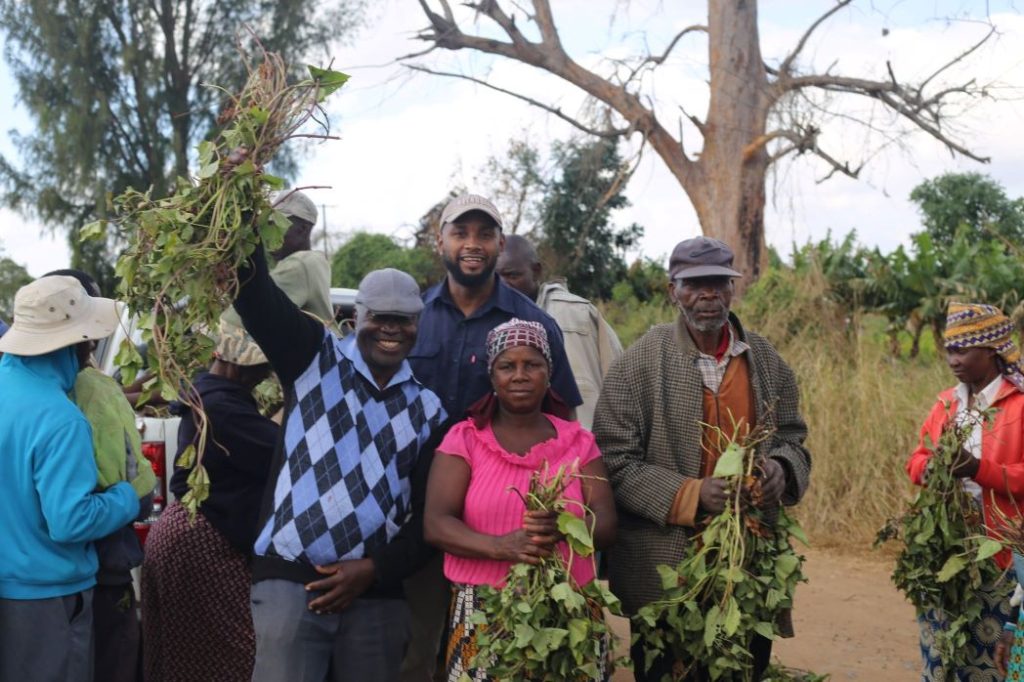
Moamba District has benefited from several training programmes promoted by research institutes implementing projects on scaling and transferring technologies adapted to agro-ecological conditions in that part of Maputo Province in southern Mozambique.
From 29 to 30 July 2024, farmers from local associations gathered in Blocks 1 and 2 for a two-day training on Good Agricultural Practices (GAP) for Orange-fleshed Sweet Potato (OFSP). The training focused on sweet potato planting techniques for food production and seed multiplication to ensure the continuity of production cycles.
The practical training session in the field elicited great interest among the farmers fueling the belief that increased OFSP production would be a game changer for the district, offering multiple advantages.
It should be recalled that the Mozambique Institute of Agricultural Research (IIAM), in partnership with the International Potato Centre (CIP), has been at the forefront of sweet potato research in the Southern African country. The partnership has led to the release of 27 varieties of orange and purple-fleshed potatoes from 2011 to date, and the dissemination of these varieties is being facilitated by the Technologies for African Agricultural Transformation (TAAT).
Established in 2018 as a central pillar of the African Development Bank’s Feed Africa strategy, TAAT represents a transformative initiative to reverse the trend of declining food productivity in Africa through the scaling of modern food production technologies to 40 million farmers across Africa, focusing on supporting young people and women in low-income regions.
TAAT has scaled up the dissemination of heat-tolerant wheat varieties, drought-tolerant maize, high-yielding rice, cassava, high-iron bean, sorghum, millet, orange-fleshed sweet potato varieties and high-quality livestock breeds, and fingerlings to more than 12 million farmers, boosting crop production by an estimated 25 million tonnes. This increase in food production is a testament to the programme’s effectiveness in enhancing agricultural productivity across the continent.
For Engr Milton Tovele, the IIAM Researcher in Umbeluzi Agricultural Station (UAE), who was one of the facilitators, the idea is to “disseminate and promote the sweet potato varieties with high potential and high nutritional value”. Whether white, orange or rock pulp, the sweet potato offers multiple advantages for human and animal consumption.
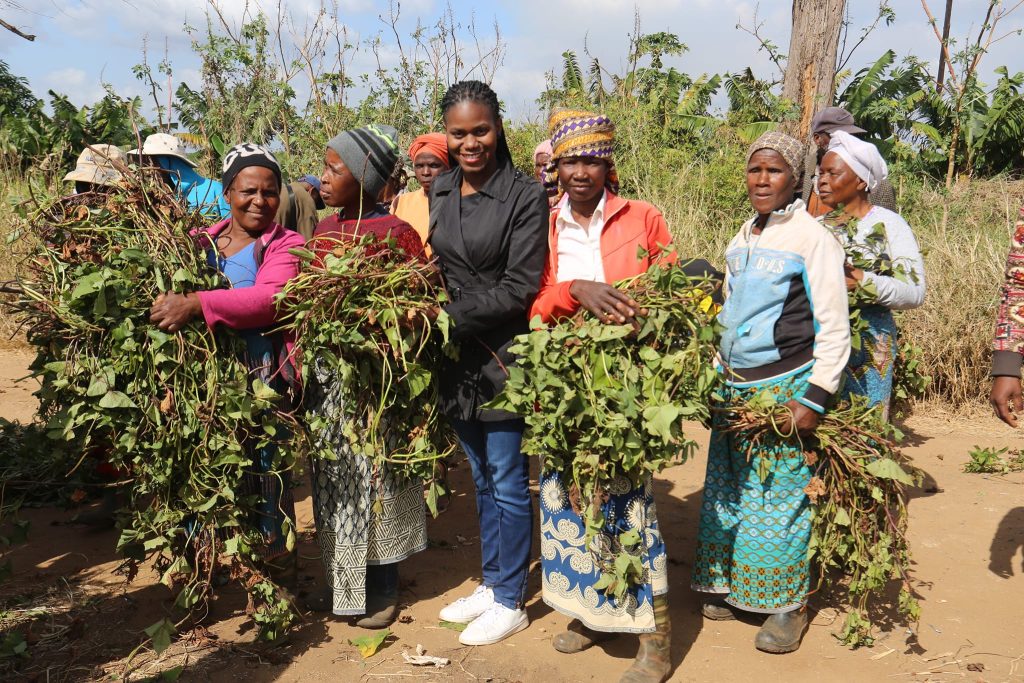
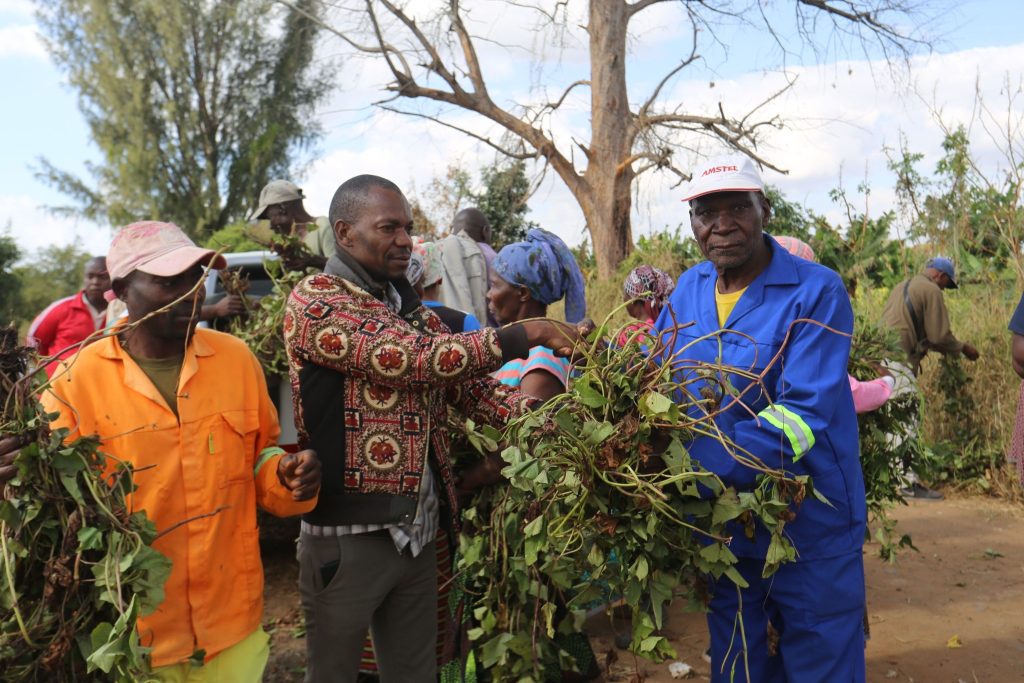
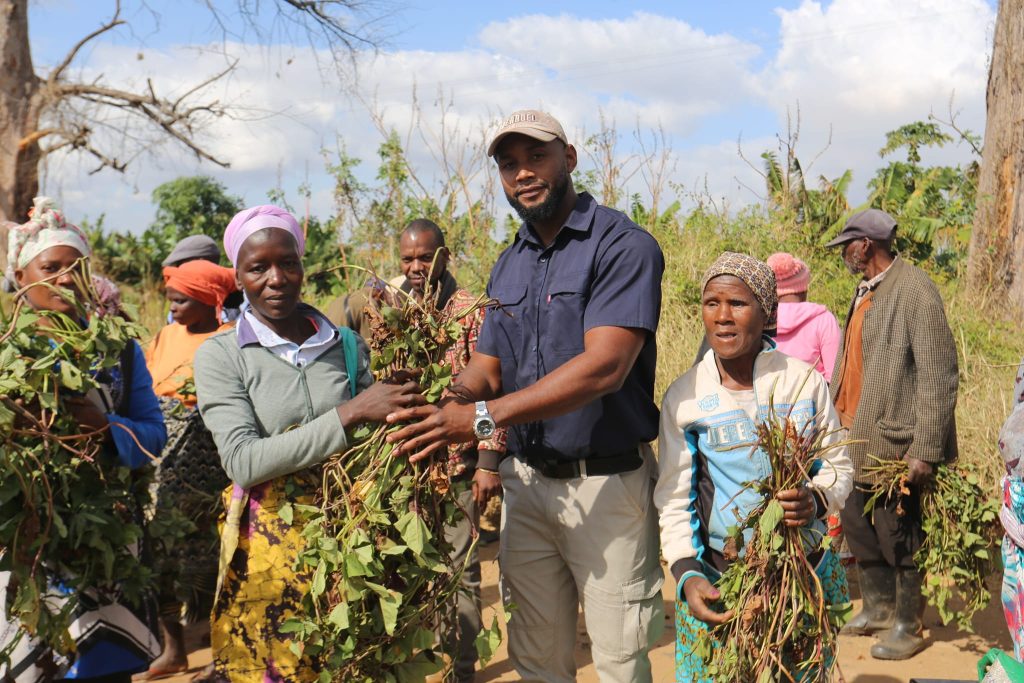
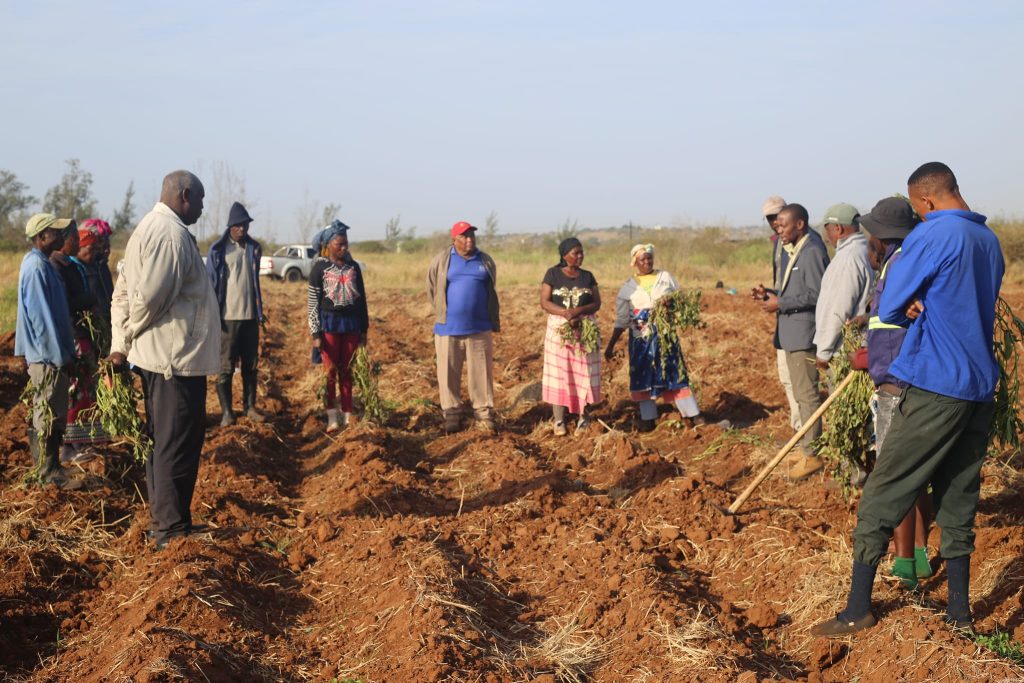
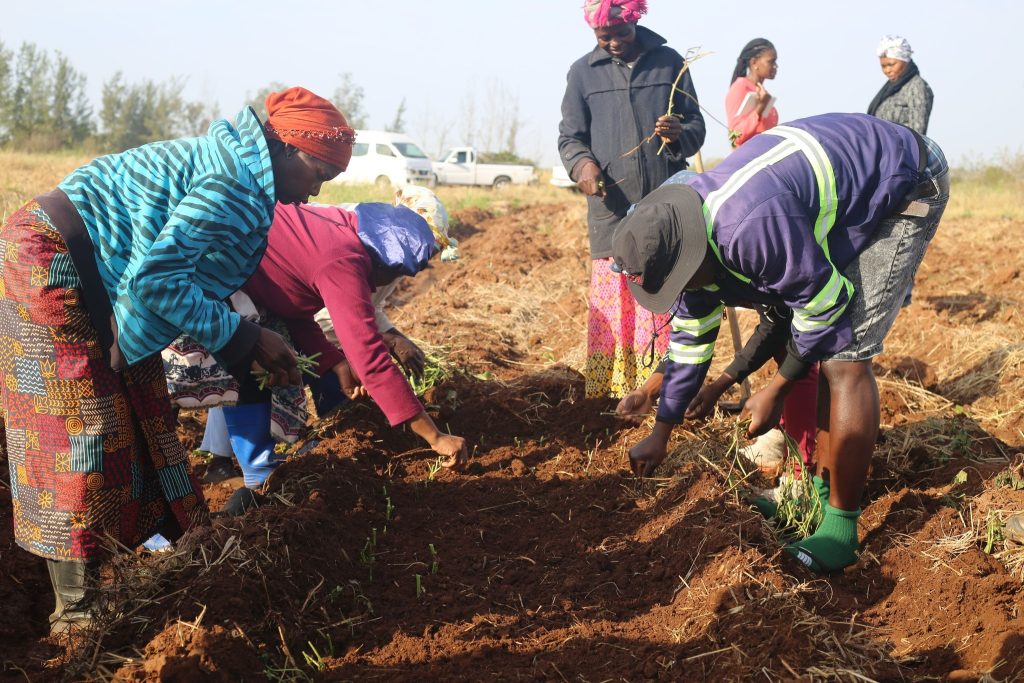
Enjoyable as food, including its leaves, OFSP has gained popularity despite farmers’ lack of financial resources to go into large-scale production. The latest varieties developed and released by IIAM and CIP are high-yielding, with a potential yield of 30 to 40 tons per hectare.
Engr Tovele urged farmers to select suitable varieties from the recently released list. In our understanding, “the market-preferred variety is what the producers should go for as the objective is to sell and make profit,” he said. According to him, the availability of disease-free vines is important so that these varieties can flourish in the district.
Therefore, the farmers were also exposed to a planting technique for the purpose of seed multiplication. “Leaving a space between them of 5 to 10 centimetres, the cut branches were planted in the position where the knot goes to the soil,” as Engr. Milton explained, adding that it is necessary to irrigate in a controlled manner after planting: “In the summer here, you water twice by day, in the morning and in the afternoon.
Lichamo Celestino, an Extension Officer at Moamba Sede, disclosed that “farmers have been facing many constraints, among them: seed acquisition, pesticides, diseases, and irregularities from rainfall”. When asked about how IIAM is responding to the challenges, Celestino affirmed IIAM and its partners’ resolve to work harder in developing varieties that are more resilient to climate conditions with regard to heat and rain.
“More specifically, we support farmers by fast-tracking access to seeds of such varieties. IIAM may also facilitate the process of a line of credit so that the farmers can get something to advance their business,” he added.
Lissa Mussá, a farmer in Moamba, hailed the training initiative and the practical sessions in the field. “It’s a good initiative; you gain more insight when you go to a training. At home, we no longer buy bread. We take sweet potato and tea, and it saves some money for other expenses,” he said.
Adriano Enoque Matsinhe has been farming in Moamba since 2020 after suffering from the effects of floods in the Magoanine area around Maputo City. He participated in the training and was impressed with the practical lessons learnt. “I learned how to plant sweet potatoes. It was a great advantage because we used to plant anyhow. We didn’t know what mechanisms we could use to produce sweet potato,” Matsinhe said.
“This new planting style is very useful and valid. We are going to start planting this way because it will make our yield to be greater.
Overall, the practical training in the field facilitated by TAAT left strong and positive impressions on farmers in a didactic way as the facilitators translated their knowledge into messages that touched the sensitivity of the participants
Recent Stories
Related Stories
- Kenya: TAAT clinches Exhibitor of the Year Award
- Edith Rehema Namusubo: How A TAAT OFSP champion is Facilitating access to Quality Planting Materials in Uganda
- How TAAT is Leveraging Africa’s Innovation Platform Networks to Scale Agricultural Technologies
- ToT Initiative for Good Practices and Quality Seed Use: How TAAT is Building Capacity Food Systems Resilience in Fragile States
- South Sudan: TAAT strengthens the varietal release system


